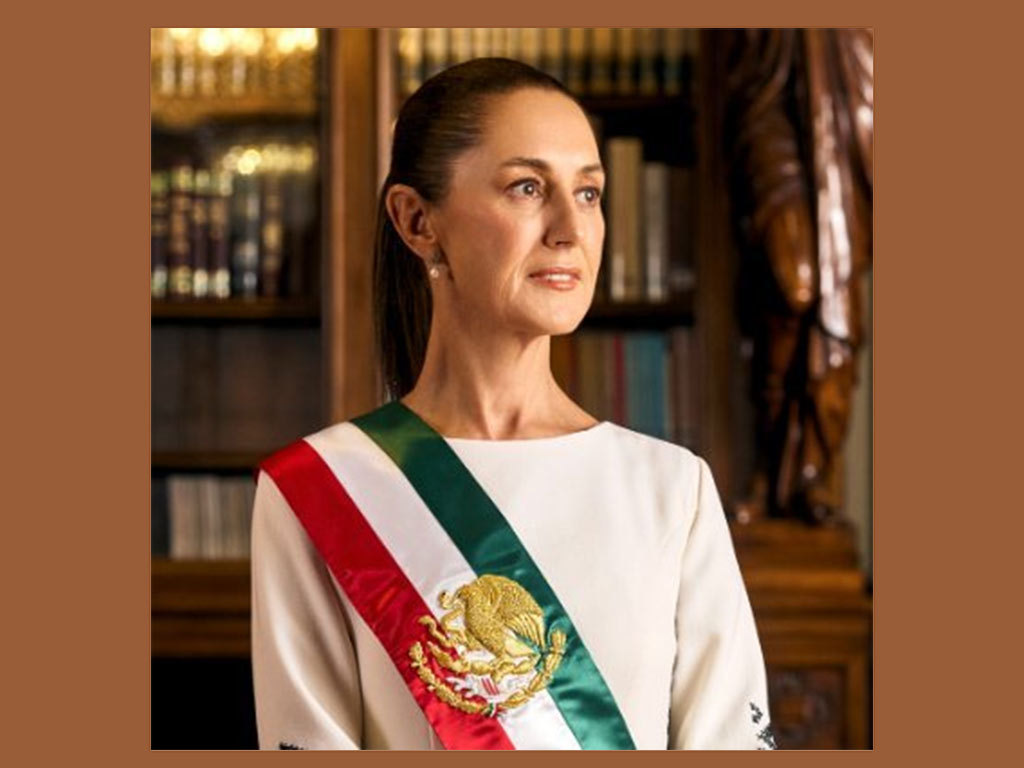The president of Mexico, Claudia Sheinbaum, arrives today at her first 100 days in office with high public approval and an administration characterised by the continuity of the process of social changes initiated in 2018.
After winning the elections in a landslide in June last year, she succeeded former governor Andrés Manuel López Obrador, the driving force behind what is considered the fourth transformation of public life in this Latin American country.
In a message broadcast on 31 December, Sheinbaum stressed that in that election almost 36 million citizens «decided two very important things: first, that the fourth transformation will continue, and second, that for the first time a woman will govern Mexico».
Between the last days of López Obrador’s mandate and the little more than three months of the current chief executive’s term in office, the nation witnessed the enactment of reforms to the Constitution that, according to Sheinbaum, return the social sense to the Magna Carta.
The one concerning the judiciary stands out, which will allow the election by popular vote of judges, magistrates and ministers on 1 June this year, something unprecedented in the country, as well as the inclusion in the constitutional text of substantive equality for women.
The recovery of the Federal Electricity Commission and Petróleos Mexicanos as state-owned public companies, the recognition of indigenous and Afro-Mexican peoples as subjects of law, and the integration of all social programmes into the fundamental law are also included.
In addition to maintaining the social programmes conceived during López Obrador’s administration, as she pledged to do, the head of state added three more, including one aimed at benefiting women between the ages of 60 and 64 with a pension.
A second initiative will provide support to families with children and adolescents enrolled in preschool, primary or secondary public education, and the third, called Salud Casa por Casa, seeks to improve the quality of life of older adults and people with disabilities.
With regard to security, considered the main concern of Mexicans, the government is implementing a strategy based on addressing the causes, consolidating the National Guard, strengthening intelligence and investigation, and coordinating with the states.
As a result, official figures show that from 1 October to 15 December 2024, Mexican authorities arrested 6,745 people for high-impact crimes and seized 3,23 firearms and more than 60 tonnes of drugs.
In the international arena, the threats made by the US president-elect, Donald Trump, to carry out mass deportations or increase tariffs on US products, have been responded to by Sheinbaum with intelligence and firmness, according to analysts.
The president has on several occasions expressed her government’s willingness to collaborate and coordinate with its northern neighbour on various issues, but without subordinating itself, and has ratified the defence of nationals in the United States and the sovereignty and independence of the Latin American country.
According to a poll conducted in December and published by the newspaper El Financiero, Sheinbaum has an approval rating of 78 per cent, the highest level recorded so far by that poll, preceded by 70 per cent support in October and 69 per cent in November.
This time only 18 per cent of those polled disapproved of her work.
On the governor’s qualities, the survey recorded 75 per cent positive opinion on honesty, 74 per cent on leadership and 67 per cent on the ability to deliver results.




